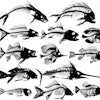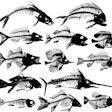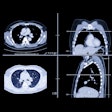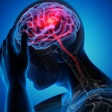
NEW YORK (Reuters Health), Dec 24 - After encouraging early trials of desmoteplase for stroke thrombolysis three to nine hours after symptom onset, the lack of benefit in the phase III trial came as a major disappointment.
However, the study investigators and the author of an editorial believe that the failure to replicate the original positive findings may be due to the mild strokes in the current study, reported in the February issue of the Lancet Neurology, published online on December 18.
In the phase III trial, 193 patients with acute ischemic stroke were randomized and 186 were treated between three and nine hours after symptom onset: 57 with a low dose of desmoteplase 90 mcg/kg, 66 with a high dose of 125 mcg/kg, and 63 with placebo.
Lead author Dr. Werner Hacke at the University of Heidelberg, Germany, and colleagues report that at 90 days, clinical response rates were 47% in the low-dose group, 36% in the high-dose group, and 46% in the placebo group.
Also, they report, "There was no significant effect of treatment on core lesion volume."
Rates of symptomatic intracranial hemorrhage were similar to those in the earlier studies (3.5% with the low dose, 4.5% with the high dose, and 0% with placebo). Overall mortality rates, however, were 11% with low-dose desmoteplase, 21% with the high dose, and only 6% with placebo.
The authors point out that "despite having similar selection criteria," the phase II trials and the current trial differed in several respects. For example, they say, "baseline strokes were less severe" in this trial, with a median NIH stroke scale score at admission of nine in this group versus 12 in the earlier studies, a difference that "might explain most of the positive placebo response."
Other factors too may have "masked or increased the difficulty of showing a potential benefit of desmoteplase," the researchers write, including small core lesions and an "inadequate sample size owing to an overly optimistic predicted size effect."
In his editorial, Dr. Michael Hill of the University of Calgary, Canada, writes, "The inclusion of patients without vascular occlusions ... might account for the failure to show any efficacy of desmoteplase over placebo."
Hill points out that the investigators used multimodal CT or MRI to define "tissue at risk," and he goes on to highlight the limits of available multimodal imaging techniques for identifying patients "who ought to be ... most suited to fast perfusion."
"Although desmoteplase might yet prove to be the thrombolytic of choice, the ... trial design forged too far ahead of the imaging science," he says. In the next trial, he adds, "vascular status will be measured noninvasively before treatment as an inclusion criterion and used as an outcome, and the ... study will test a single hypothesis -- does the drug work?"
Lancet Neurology 2009.
Last Updated: 2008-12-23 15:11:53 -0400 (Reuters Health)
Related Reading
Desmoteplase may increase stroke reperfusion window, June 6, 2006
Copyright © 2008 Reuters Limited. All rights reserved. Republication or redistribution of Reuters content, including by framing or similar means, is expressly prohibited without the prior written consent of Reuters. Reuters shall not be liable for any errors or delays in the content, or for any actions taken in reliance thereon. Reuters and the Reuters sphere logo are registered trademarks and trademarks of the Reuters group of companies around the world.
















